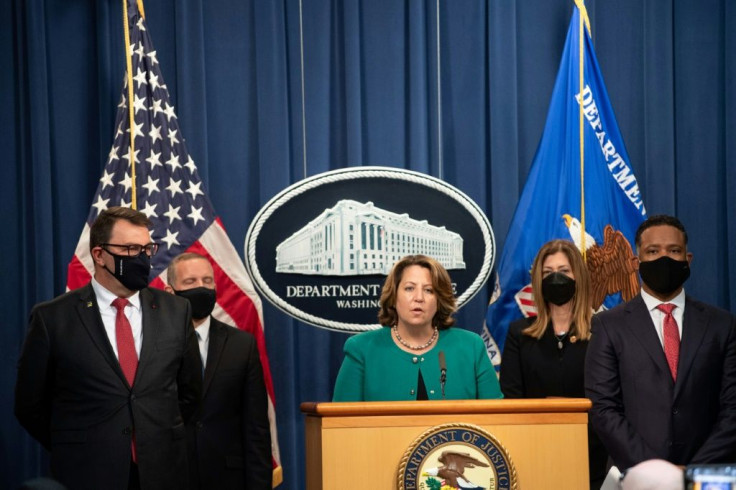Police Arrest 150 In Joint US-Europe Dark Web Sweep
Police in Europe and the United States announced Tuesday the arrest of 150 people who allegedly bought and sold significant volumes of drugs, weapons and other illegal goods on the dark web.
Europol and US authorities said they had seized tens of millions of euros in cash and virtual currencies as they rolled up an online underground trading market in the 10-month Operation Dark HunTOR.
They said major dealers of counterfeit drugs, often tainted with dangerous substances like fentanyl, on the dark web had been arrested.
Most of the arrests, which took place over several months, were in the United States, with 65 people; Germany, 47; and Britain 24. Others came from Bulgaria, France, the Netherlands, Italy and Switzerland.
The arrests came after a similar joint operation led by the Germans seized the largest illegal marketplace on the dark web, DarkMarket, in January.
By taking over DarkMarket, authorities were able to break through the layers of anonymity that protected traders and trace transactions to their origins.
"The point of operations such as this is to put criminals operating on the dark web on notice (that) the law enforcement community has the means and global partnerships to unmask them and hold them accountable for their illegal activities," Europol deputy director of operations Jean-Philippe Lecouffe said.
US officials said in a press conference in Washington that the illegal drug trade had moved more to the dark web in the Covid-19 pandemic.
They said that besides straightforward sales of illegal narcotics like cocaine, amphetamines and ecstasy, that many of the drugs being sold were purportedly common prescription drugs like Adderall, Xanax and Oxycontin but were laced with other dangerous substances like fentanyl and methamphetamine.

US Deputy Attorney General Lisa Monaco said that of more than 200,000 pills seized in the US side of the operation, 90 percent contained "counterfeit opioids or other narcotics" like extremely dangerous fentanyl.
Speaking in Washington, Lecouffe said most of those arrested were high-value targets, "among the most prolific or sensitive actors on the dark web."
The US Justice Department said the US arrests included a sizable operation in Houston, Texas, that took anonymous orders online and shipped drugs to buyers around the country through the mail.
In all, the operation netted 26.7 million euros ($31 million) in cash and virtual currencies, as well as 45 guns, and 234 kilogrammes (516 pounds) of drugs, mostly amphetamine, ecstasy, cocaine and opioids.
In parallel to the Operation Dark HunTOR, officials said Italian police had shut down two similar underground marketplaces dubbed "DeepSea" and "Berlusconi."
Together the Italian marketplaces boasted over 100,000 announcements of illegal products, said Europol, which coordinated the operation together with its twin judicial agency Eurojust.
The arrest of three people in France in Operation Dark HunTOR led to the closure of another dark web trading venue, called "Le Monde parallele," or "Parallel World," according to a French police official.
Rolf van Wegberg, cybercrime investigator at the TU Delft university, said the operation signalled a shift in investigations of online crime.
"This kind of operations in the past looked at arresting the controllers of these marketplaces. We now see police services targeting the top sellers," he told the Dutch KRO-NCRV public broadcaster.
Monaco told reporters that the operation showed there was no real protection for illicit trade on the dark web, where anonymity is supposedly made safe by the TOR browser.
"Those who are peddling illegal drugs and thinking they are safe behind layers of digital anonymity: my message to you is simple. There is no dark internet. We can and we will shine a light," she said.
© Copyright AFP 2024. All rights reserved.





















